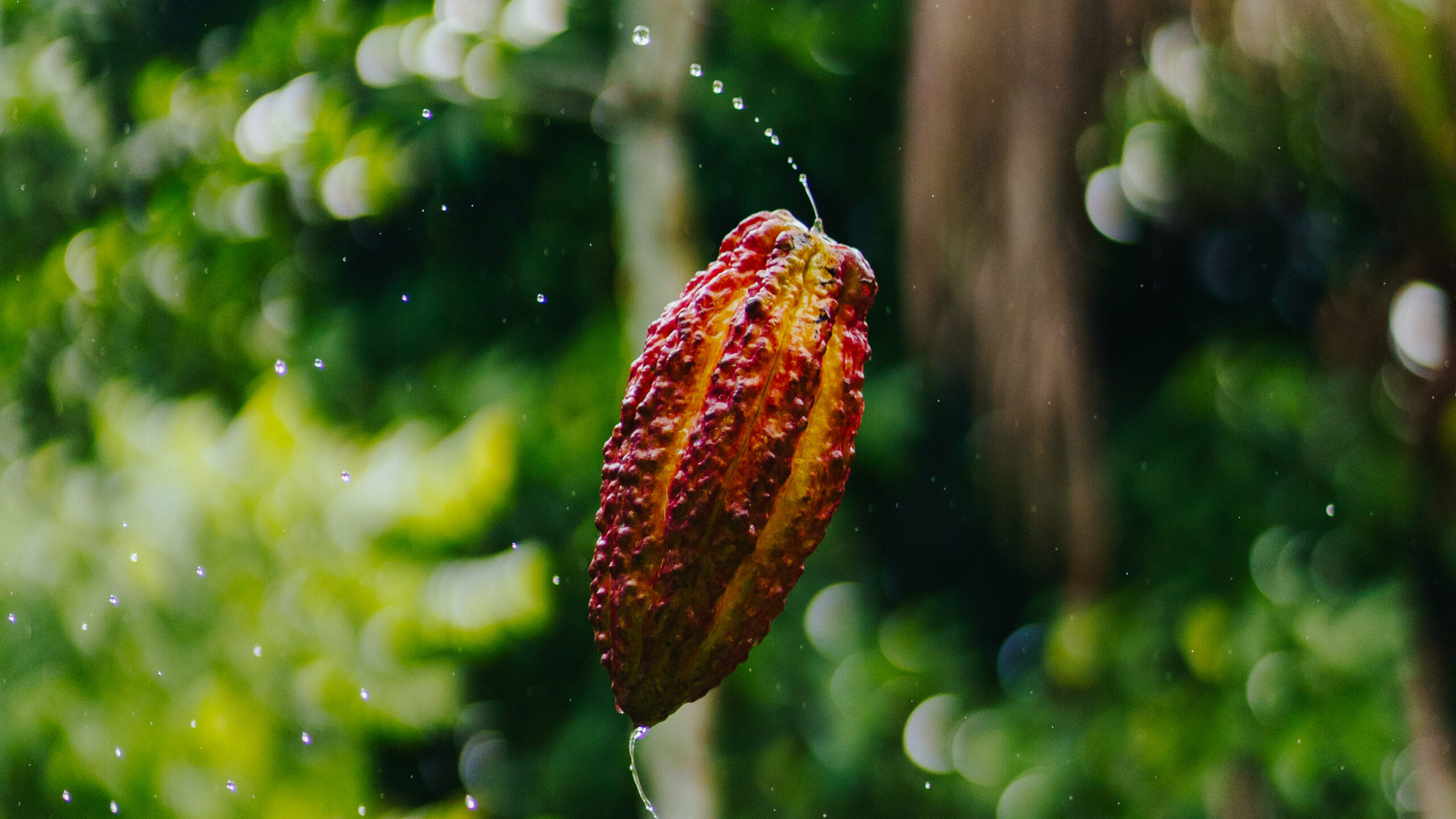Demonstration farms offer hands-on learning to sustainably boost the cocoa sector’s productivity

The Institute for Forest and Agricultural Management and Certification (Imaflora), a partner of Fundo Vale and CocoaAction Brasil in the 2030 Cocoa Project, has finished installing two cocoa demonstration farms in the municipalities of Uruará and Marabá in Pará. These demonstration farms will serve as models to help spread sustainable cocoa farming practices. They were set up on rural properties that use agroforestry systems for cocoa production, with technical support from Imaflora.
“The demonstration farms will function as practical learning environments where producers can test new approaches, solutions and innovations adapted to their conditions. These sites will be a point of reference for technology transfer, helping increase the productivity and sustainability of the cocoa chain,” explains Bia Marchiori, who is responsible for the technical, knowledge and social and environmental safeguards components of Vale’s 2030 Forest Goal.
The implementation of the demonstration farms was also supported by the Pará State Forestry Development and Biodiversity Agency (Ideflor-Bio), which supplied the hybrid cocoa seedlings, sourced from the Environment Ministry’s Cocoa Farming Plan Executive Commission (Ceplac); the Uruará Municipal Agriculture Secretariat, which helped with the irrigation equipment and fertilizers; and the Brazilian Micro and Small Enterprise Support Service (SEBRAE), which drew up the technical irrigation design.
In addition to the demonstration farms, Imaflora has held 15 events, including training, workshops, talks and forums, in seven municipalities across the state of Pará. In all, 413 technical assistance and rural extension agents have been trained in topics such as pruning cacao trees, soil analysis, disease management, agroforestry systems and sustainability. Imaflora has also involved public and private sector institutions in the project, such as the Pará State Technical Assistance and Rural Extension Agency (EMATER-Pará), universities, cooperatives and government bodies, thus expanding its impact.
According to João Eduardo Ávila, Imaflora’s projects and services coordinator, the work carried out highlights the potential for disseminating technical knowledge, showing management in a very practical way, involving the implementation of demonstration farms in the context of family farming. “It’s a real environment that provides opportunities for dialogue between farmers, as well as helping measure the benefits and difficulties encountered,” he says.
Ávila points out that in its next steps, the project will expand beyond cocoa cultivation training to include sustainability and social responsibility, targeting technical assistance and rural extension professionals involved in cocoa farming.
The 2030 Cocoa Project seeks to revitalize cocoa production in Brazil based on a sustainable and innovative approach. Its objectives are to increase the competitiveness of cocoa farming in Brazil, improve the quality of the product and ensure the sustainability of agricultural practices, through innovation in production processes and practices, training for producers and measures to strengthen the production chain, with a focus on social and environmental benefits for the communities involved. The project’s partnership with Fundo Vale is associated with Vale’s 2030 Forest Goal, which aims to protect 400,000 hectares of habitat and restore another 100,000 hectares.
